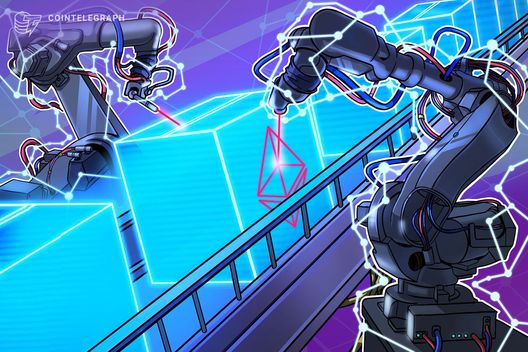
Brevis, a blockchain technology company, has made a significant breakthrough in the field of Ethereum block validation. The company has achieved an impressive 99.6% real-time proving of Ethereum blocks using consumer-grade Graphics Processing Units (GPUs). This accomplishment signifies a major step forward in the quest for scaling solutions for blockchain networks and paves the way for validation processes to be conducted on mobile phones.
Blockchain technology, particularly in the case of Ethereum, relies on a consensus mechanism known as Proof of Work (PoW) to validate transactions and add new blocks to the chain. This process requires significant computational power, typically provided by specialized mining hardware. However, Brevis has demonstrated that consumer GPUs, which are more widely accessible and less expensive than specialized mining equipment, can also be used effectively for block validation.
By achieving real-time proving of Ethereum blocks with such a high success rate, Brevis has showcased the potential for more decentralized and accessible validation methods. This breakthrough is crucial for addressing scalability issues that have plagued blockchain networks, including Ethereum, as they strive to handle increasing transaction volumes efficiently.
One of the most significant implications of Brevis' achievement is the possibility of conducting validation processes on mobile devices. With the widespread adoption of smartphones globally, enabling phone-based validation could democratize access to blockchain technology and empower users to participate in network validation activities without requiring expensive hardware setups.
The use of consumer GPUs for block validation could also lead to a more environmentally friendly approach to blockchain operations. Specialized mining hardware consumes a significant amount of energy, contributing to concerns about the environmental impact of blockchain networks. By demonstrating the effectiveness of consumer GPUs in real-time block proving, Brevis has opened the door to more energy-efficient validation methods that could help reduce the carbon footprint of blockchain operations.
Overall, Brevis' achievement in achieving 99.6% real-time proving of Ethereum blocks using consumer GPUs is a significant milestone in the ongoing development of blockchain technology. The breakthrough not only showcases the potential for more decentralized and accessible validation methods but also offers a promising path towards scalability, energy efficiency, and mobile-based validation solutions in the blockchain space. As the industry continues to evolve, innovations like this will play a crucial role in shaping the future of blockchain networks and their applications across various industries.

Leave a Reply